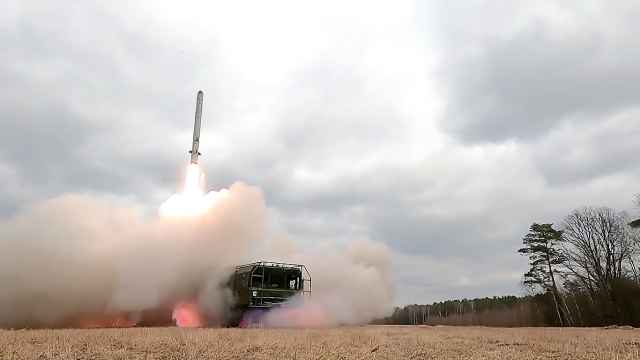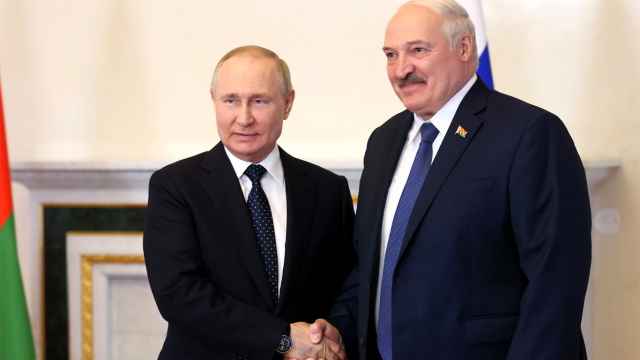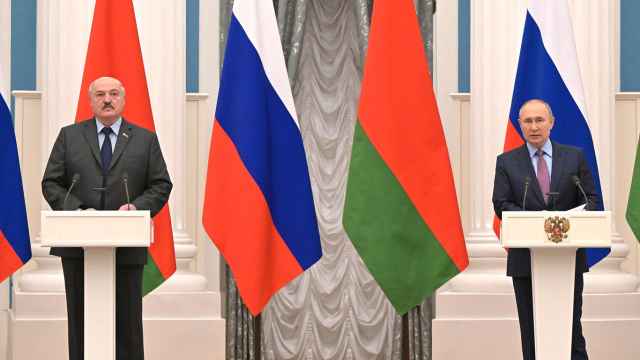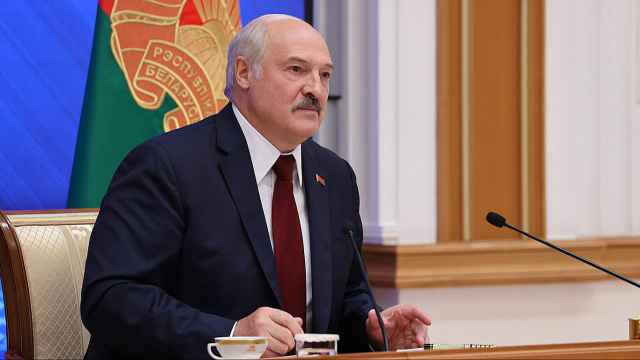Belarus on Tuesday denounced coordinated sanctions against the ex-Soviet country by the EU, U.S., Britain and Canada, imposed after the forced landing of a Ryanair flight to arrest a regime critic.
The sanctions follow global outrage over the forced landing of a passenger flight in Minsk where authorities detained opposition activist Roman Protasevich and his girlfriend who were traveling on board.
They were the latest in a series of penalties against President Alexander Lukashenko, who has ruled Belarus for nearly three decades and has clamped down on the opposition after mass protests erupted following disputed presidential elections last year.
"We have repeatedly stated that sanctions negatively affect the interests of citizens, they are counterproductive and vicious," the Belarusian foreign ministry said in a statement.
"But deliberate, destructive actions against the population are being continued in order to 'drain the regime financially' so to speak."
The ministry described the sanctions as "hostile actions" and said Western countries were using "pressure on a sovereign state."
"Against this backdrop, the statement of the leadership of the European Union looks like an outright mockery, a mockery of logic and common sense," the ministry said.
It added that Belarus "is able and will do everything possible to protect its citizens and business entities" and the restrictions "will not have the desired effect."
The European Union and the United States both targeted dozens of individuals and entities over a brutal crackdown on the opposition after Lukashenko claimed a landslide re-election for a sixth term last August.
Brussels and London added seven officials — including the defense and transport ministers of Belarus — to their sanctions blacklists for the grounding of the Ryanair jet.
EU foreign ministers meeting in Luxembourg also backed broad-ranging sanctions targeting major revenue sources for the Belarusian regime: potash fertilizer exports, the tobacco industry, petroleum and petrochemical products.
Lukashenko and his allies have already faced a slew of sanctions from Brussels and Washington over the violent handling of protests that for months brought tens of thousands of people to the streets.
Thousands were arrested and several people died while key opposition figures either fled the country or ended up in jail.
Lukashenko's main opponent in the vote was Svetlana Tikhanovskaya, a political novice who took the place of her jail husband in the poll and quickly gained popularity.
She was forced into exile to neighboring EU member Lithuania several days after the protests started.
The opposition believes Tikhanovskaya was the true winner of the election and she has received the support of several Western leaders.
Lukashenko, however, has so far shrugged off the Western pressure with backing from key ally and creditor Russia.
A Message from The Moscow Times:
Dear readers,
We are facing unprecedented challenges. Russia's Prosecutor General's Office has designated The Moscow Times as an "undesirable" organization, criminalizing our work and putting our staff at risk of prosecution. This follows our earlier unjust labeling as a "foreign agent."
These actions are direct attempts to silence independent journalism in Russia. The authorities claim our work "discredits the decisions of the Russian leadership." We see things differently: we strive to provide accurate, unbiased reporting on Russia.
We, the journalists of The Moscow Times, refuse to be silenced. But to continue our work, we need your help.
Your support, no matter how small, makes a world of difference. If you can, please support us monthly starting from just $2. It's quick to set up, and every contribution makes a significant impact.
By supporting The Moscow Times, you're defending open, independent journalism in the face of repression. Thank you for standing with us.
Remind me later.






